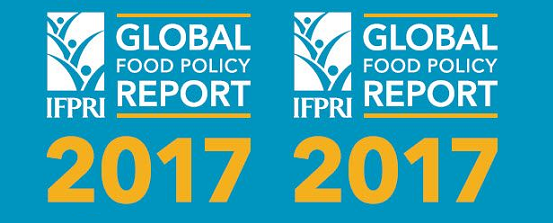
The world is rapidly urbanizing. How does this affect hunger and malnutrition? International Food Policy Research Institute’s 2017 Global Food Policy Report takes an in-depth look at the challenges and opportunities of urbanization for food security and nutrition.
The Geneva launch of IFPRI’s 2017 Global Food Policy Report report takes place on March 31, 2017. Speakers during the launch event are:
- Samuel Gayi, Head, Special Unit on Commodities, United Nations Conference on Trade and Development (UNCTAD)
- Shenggen Fan, Director General, IFPRI
- Gerda Verburg, United Nations Assistant Secretary General and Coordinator of the SUN Movement
- Lawrence Haddad, Executive Director, Global Alliance for Improved Nutrition (GAIN)
- Chizuru Nishida, Coordinator for Nutrition Policy and Scientific Advice Unit, World Health Organization (WHO)
Critical questions that will be addressed:
- What do we know about the impacts of urbanization on hunger and nutrition?
- What are our greatest research and data needs for better policy making that will ensure food security and improve diets for growing urban populations?
- How can we better connect rural smallholders to urban food consumers to ensure that smallholders and urban residents benefit from expanding urban food markets?
- What role do informal markets play in feeding cities, and how can they be better governed to increase urban food security?
2017 Global Food Policy Report
IFPRI’s flagship report reviews the major food policy issues, developments, and decisions of 2016, and highlights challenges and opportunities for 2017 at the global and regional levels. This year’s report looks at the impact of rapid urban growth on food security and nutrition, and considers how food systems can be reshaped to benefit both urban and rural populations. Drawing on recent research, IFPRI researchers and other distinguished food policy experts consider a range of timely questions:
- What do we know about the impacts of urbanization on hunger and nutrition?
- What are our greatest research and data needs for better policy making that will ensure food security and improve diets for growing urban populations?
- How can we better connect rural smallholders to urban food consumers to ensure that smallholders benefit from expanding urban food markets?
- Why do city environments drive a nutrition transition toward poorer diets, and what policies can improve the nutrition environment?
- How are urban areas reshaping agricultural value chains for staple crops and benefiting small farmers?
- What role do informal markets play in feeding cities, and how can they be better governed to increase urban food security?
The 2017 Global Food Policy Report also presents data tables and visualizations for several key food policy indicators, including country- level data on hunger, agricultural spending and research investment, and projections for future agricultural production and consumption. In addition to illustrative figures, tables, and a timeline of food policy events in 2016, the report includes the results of a global opinion poll on urbanization and the current state of food policy.
- This event has passed.

